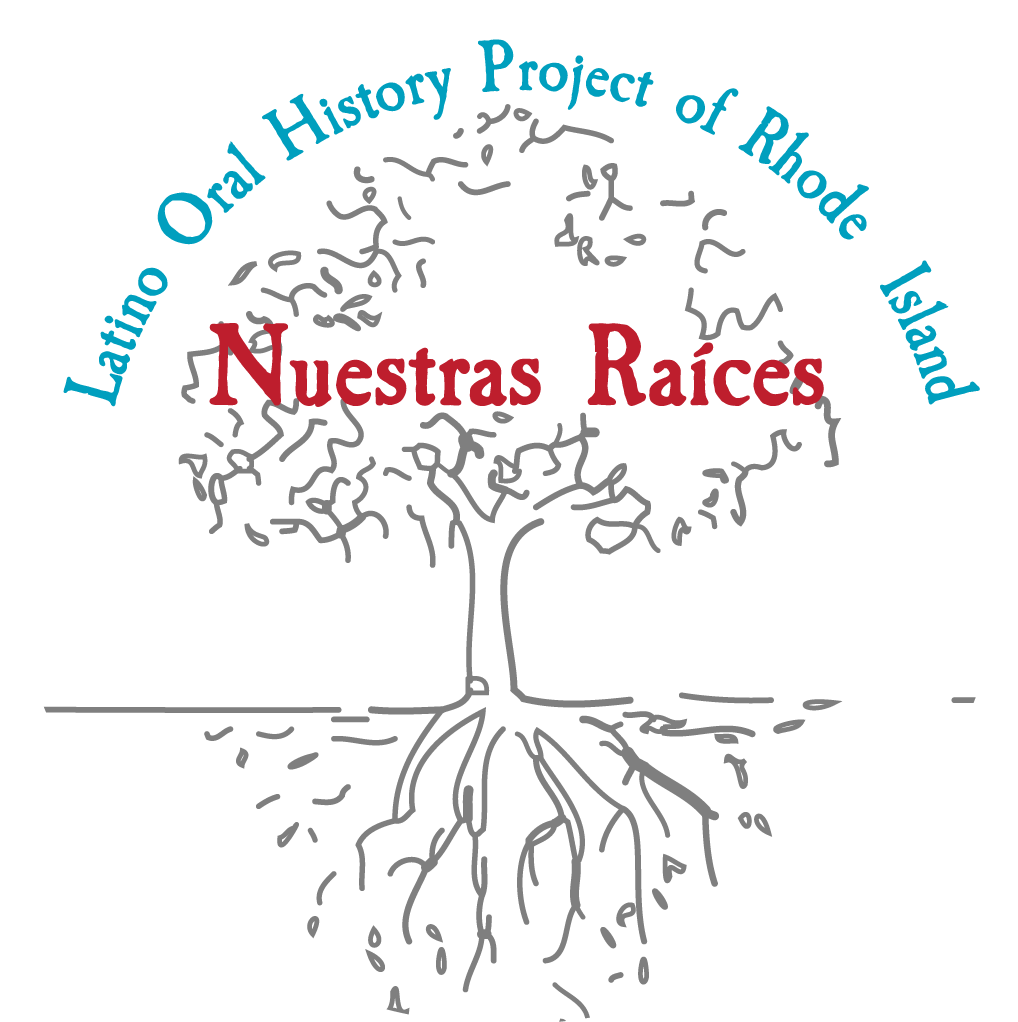We are largely a mixed-race people due to the various colonial histories of our countries and encounters between Europeans, indigenous people, and Africans. Our cultural heritage and who we are today is a result of an unprecedented history of transcontinental migration, when after 1492, 60 million Europeans, 11 million Africans, and 5 million Asians arrived in the Americas to inhabit a land that once belonged to what was once the Aztec Empire, now non-existent.
Latinos come from regions of the world that span two continents: North America (including Central America and the Caribbean) and South America. This includes 19 sovereign nations and one non-independent territory, Puerto Rico. Most people from these regions speak Spanish or Portuguese, although French, English, Dutch, and Kreyol are also spoken in parts of the Caribbean, Central America, and South America.
Nuestras Raíces is a project or Rhode Island Latino Arts, a statewide organization based in Providence and Central Falls. We acknowledge that we are on the traditional homelands of the Narragansett and Wampanoag peoples, the original stewards of the territory now called Rhode Island. We honor their ancestors, we offer our respect to the Elders past, present, and future, and we recognize their continued existence and contributions to our society.

Collecting our history is incredibly important for me because we, as Latinos, rarely are given the opportunity to share our history and to tell our story. My hope is for the younger generations to learn about all the successes that Latinx individuals have had in this country, and to understand the whole history of the Latinx community, and how celebrateing our diversity makes us stronger and keeps united.
Marta V. Martínez, Founder of Nuestras Raíces and Community Oral Historian
Latinx and Latiné are pan-ethnic terms used to describe people who are of or relate to Latin American origin or descent. They are regarded by some as gender-neutral or nonbinary alternatives to Latino, Latina and Hispanic.
To better understand the community we serve, RILA staff has gathered informal, non-scientific feedback from Rhode Islanders who identify with Latin American or Caribbean heritage. Our findings show that the terms Latino and Latinx are generally unpopular, with many individuals unfamiliar with or confused by the term Latiné. What we found is that among second-generation Latino-Americans, the terms Hispanic and Latino/Latina are more widely accepted. Overall, the highest percentage of second-generation Rhode Islanders prefer identifying by their national origin—such as Dominican-American, Guatemalan-American, Colombian-American, and so on.
Further, a Pew Hispanic Report supports these insights, noting that critics of Latinx see it as an imposition from English speakers that disrupts Hispanic or Latino cultural norms. Some opponents also argue that it doesn’t follow Spanish language rules and can be challenging to pronounce and use.
After thoughtful discussions, RILA’s staff and board have decided to prioritize the use of Latino/Latina when referring to our Spanish-speaking community in Rhode Island. The term Latinx will be used intermittently, but we will avoid any use of Latiné. Many formal and informal conversations among RILA staff and board members have led us to conclude that non-Latinos and allies who choose Latiné signals a lack of alignment with the cultural values shared by Rhode Islanders of Latin American heritage and that of RILA.
Further, a Pew Hispanic Report supports these insights, noting that critics of Latinx see it as an imposition from English speakers that disrupts Hispanic or Latino cultural norms. Some opponents also argue that it doesn’t follow Spanish language rules and can be challenging to pronounce and use.
After thoughtful discussions, RILA’s staff and board have decided to prioritize the use of Latino/Latina when referring to our Spanish-speaking community in Rhode Island. The term Latinx will be used intermittently, but we will avoid any use of Latiné. Many formal and informal conversations among RILA staff and board members have led us to conclude that non-Latinos and allies who choose Latiné signals a lack of alignment with the cultural values shared by Rhode Islanders of Latin American heritage and that of RILA.
We do not discriminate on the basis of race, ethnicity, class, color, sexuality, gender, gender expression, religion, age, nationality, disability, marital status, or military status, in any of our activities or operations. We value diversity. We are committed to providing an inclusive and welcoming environment for all visitors, members of our staff, artists-in-residence, contracted artists and vendors.
We acknowledge our areas of privilege and how they interact and potentially impact our audiences and oppressed identities. We recognize the power dynamic that is evident by virtue of the art that is created by and sponsored by RILA and the arts participant. While we do not put this responsibility on our audiences or visitors to La Galería, we do welcome and encourage your feedback if you have ever been discriminated against or experienced micro-aggressions by a board member, our staff, or any artists representing RILA.
We acknowledge our areas of privilege and how they interact and potentially impact our audiences and oppressed identities. We recognize the power dynamic that is evident by virtue of the art that is created by and sponsored by RILA and the arts participant. While we do not put this responsibility on our audiences or visitors to La Galería, we do welcome and encourage your feedback if you have ever been discriminated against or experienced micro-aggressions by a board member, our staff, or any artists representing RILA.
© All Rights Reserved | Nuestras Raíces: Latino History of RI © | When using materials from this website, please acknowledge by stating the name of the URL of the webpage on which it is displayed. Citations should include full bibliographic information as follows: Courtesy of the Latino Oral History Project of Rhode Island, Central Falls, RI.
